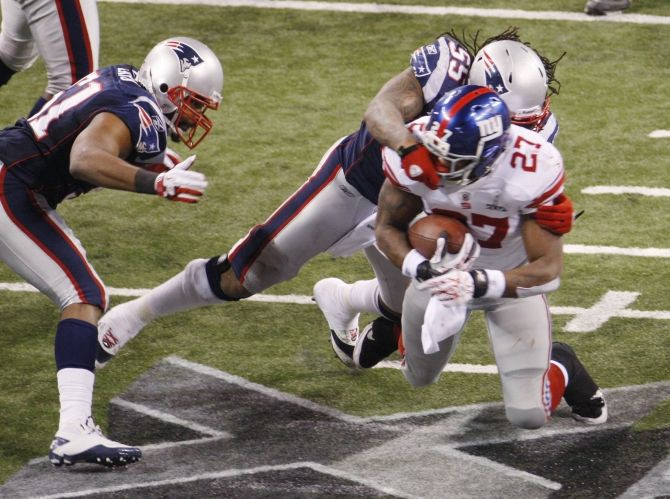Former NFL Players Lawsuit Strengthened by Concussion Research Results

Concussions are a central part of a lawsuit that was filed by retired National Football League (NFL) players and a new study is helping the cause. Repeated hits can increase long-term brain damage risk.
Repeated hits that many players have received on Sunday's while playing in the NFL may cause subconcussive injury. This injury, although not quite a concussion, alters brain function. Subconcussive injuries could increase the risk of long-term brain damage and impaired brain function over time.
The new study is being led by researchers from the Purdue Neurotrauma Group. The team at Purdue University has been looking at how football is affecting the brain. While concussions have been the focal point of new studies, the many blows, from tackles to linemen colliding, that occur during an NFL game are adding up and affecting brain function.
According to researchers, studying high school football players, more than half of the players have had changes in their brain function which would negatively affective cognitive ability despite never having a concussion. Researchers examined the high school football players for three seasons by placing sensors in helmets as well as performing fMRIs before, during and after each of the three seasons.
One of the issues with playing football is that while a helmet offers some protection to the face and skull, it does not account for the brain being moved around as a result of being hit. The team has developed new helmet technology which would reduce some of the force to the brain, but more efforts are needed to generally decrease the number of times the brain is subjected to the aftereffects of football hits, note researchers.
The findings have significant implications for former NFL players who are suing the league. The thousands of hits that occur each season can possibly cause subconcussive injuries increasing the risk of future brain damage as well as concussions. In the suit, filed on June 07, 2012, the ex-NFL players claim the league hid information that tied head injuries related to football with permanent brain damage. The ex-NFL players are hoping to have the league take care of players who are suffering from Alzheimer's disease, dementia and other neurological conditions.
In comments made to the Associated Press, the lawsuit claims the NFL knew of the risks involved with repeated hits, such as causing subconcussive injuries or concussions, but did not do enough to educate players on the toll the game of football could have on brain function.
The NFL is countering those claims, stating that the league has always promoted player safety and did not try to mislead players of any potential dangers. A new study highlighted how concussions can be problematic to diagnosis since a concussion, and symptoms, are not the same for everyone. Other studies looking at donated brains of deceased former NFL players have also turned up signs of chronic traumatic encephalopathy (CTE). CTE can cause memory loss, erratic behavior, dementia and depression cannot be diagnosed until a person has died and an autopsy has been performed.
Published by Medicaldaily.com



























